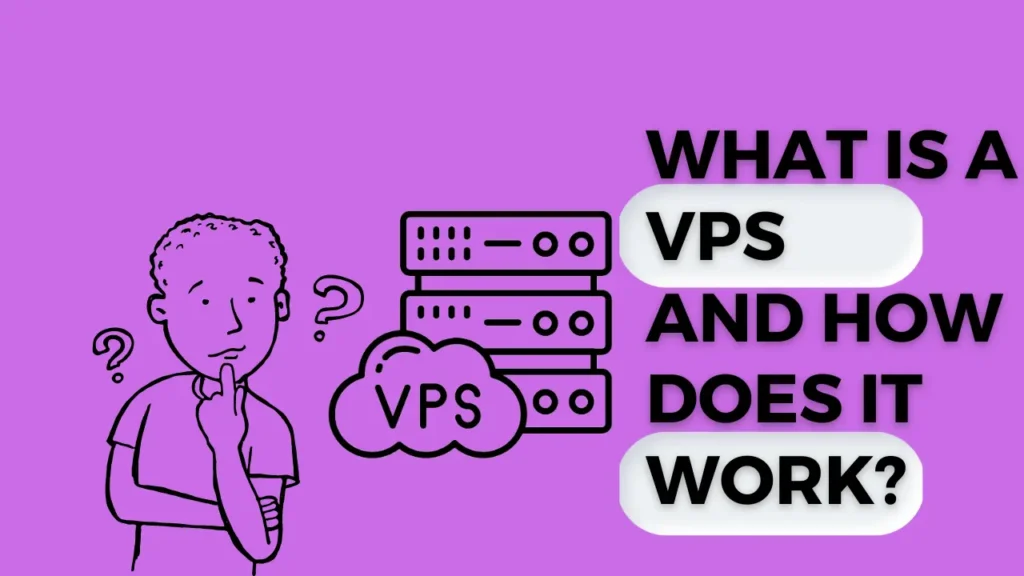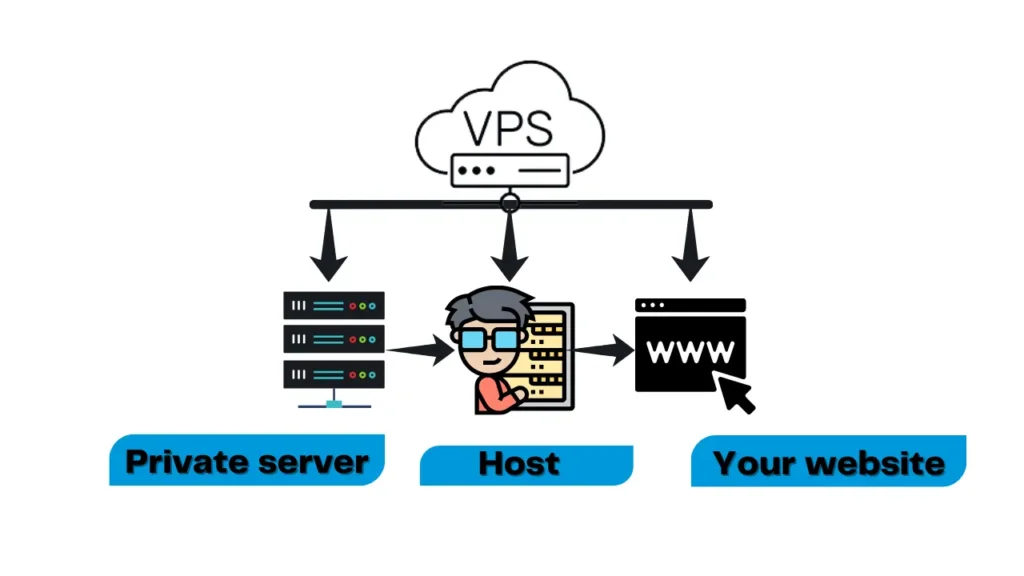
When it comes to website hosting, there are a lot of different options available. One type of hosting which has become popular is VPS hosting, But what exactly is VPS hosting, and how does it work? In this blog post, we’ll explore the basics of VPS hosting and its advantages and disadvantages.
What is VPS Hosting?
VPS (Virtual Private Server) hosting is a type of web hosting that uses virtualization technology to create a private virtual server within a more extensive physical server. In other words, VPS hosting allows you to have a dedicated virtual machine completely independent from other users on the same physical server.
How Does VPS Hosting Work?
VPS hosting works by partitioning a single physical server into multiple virtual servers, Each virtual server acts as an independent entity, with its own operating system, disk space, and bandwidth as per the physical server.
VPS hosting provides users with the benefits of dedicated hosting, such as increased security and customization options, without the high costs associated with running a dedicated server
In addition, VPS hosting allows users to increase or decrease their hosting resources as needed, because VPS hosting plans typically come with a set amount of resources, such as CPU power, RAM, and storage, which can be upgraded or downgraded as needed depending on the VM on which the instance was created.

Advantages of VPS Hosting
- It is secured: VPS hosting provides greater security compared to shared hosting, as each virtual server is isolated from other users on the same physical server.
- It is scalable: it allows users to increase or decrease their hosting resources as needed, which can be useful for websites that experience sudden traffic spikes or periods of high demand.
- Customizable: VPS hosting allows users to customize their server configuration to meet their specific needs. This means that users can install the software they need, configure their server settings, and optimize their server performance.
- Costs less (free in some services): VPS hosting is more cost-effective than dedicated hosting, as users only pay for the resources they need. This makes it an attractive option for small and medium-sized businesses that need a dedicated server with less cash.
Disadvantages of VPS Hosting
- Resource sharing: While you do have your own virtual private space, you’re still sharing the physical server with other users, so if other users are using a lot of resources, this can affect the performance of your website.
- Technical knowledge may be required: it can require a certain level of technical knowledge to set up and maintain. If you’re not comfortable with server administration, you may need to hire someone to help you out.
Conclusion:
VPS hosting is like the Goldilocks of hosting options. It’s not too expensive like dedicated hosting, but not too limited like shared hosting. With VPS hosting, you get the perfect balance of increased security, customization, scalability, and cost-effectiveness. It’s like having your own private slice of the internet that’s just right for your website’s needs. So if you want a hosting solution that won’t break the bank but can still handle your website’s growth, VPS hosting is the best option!



